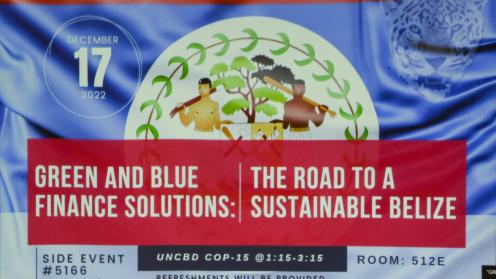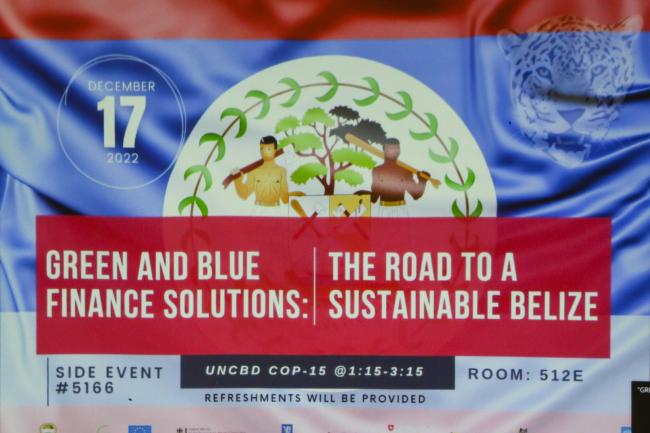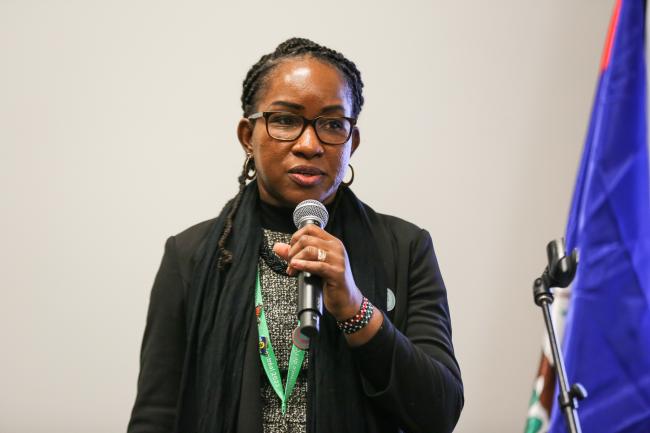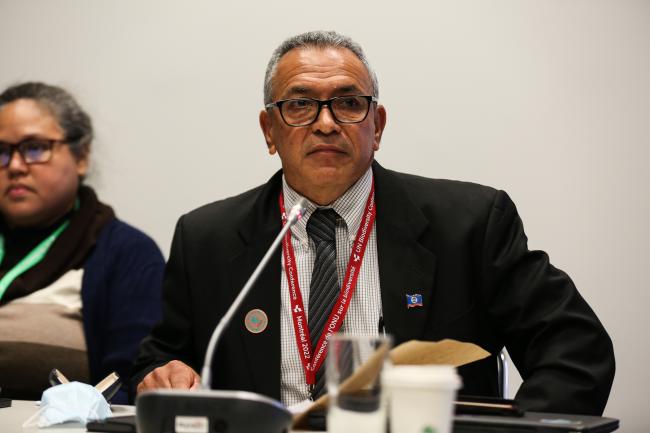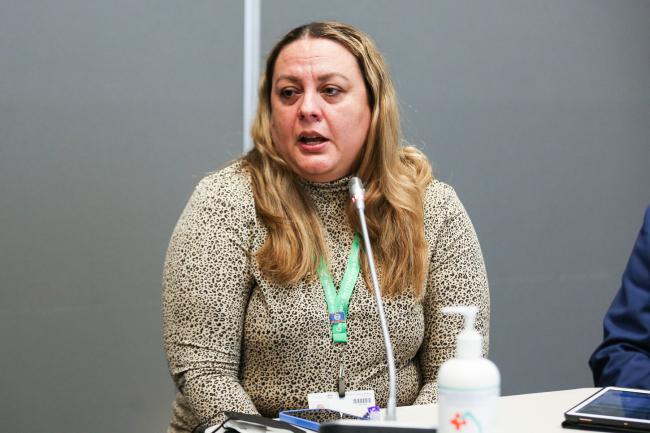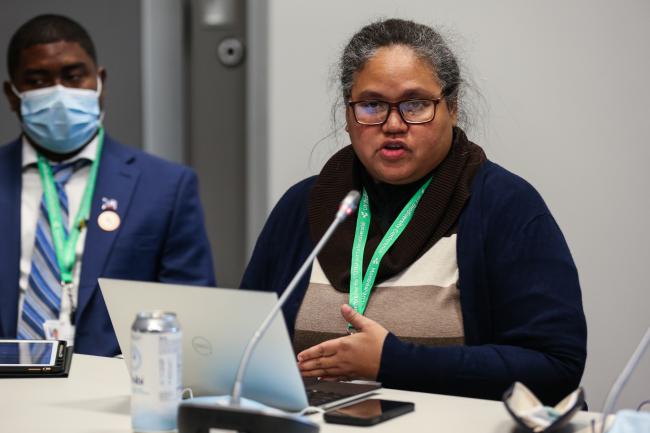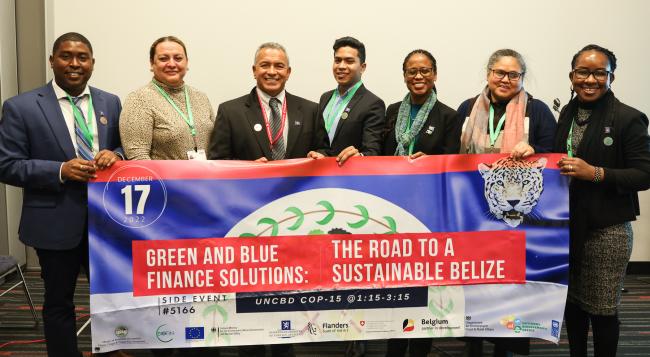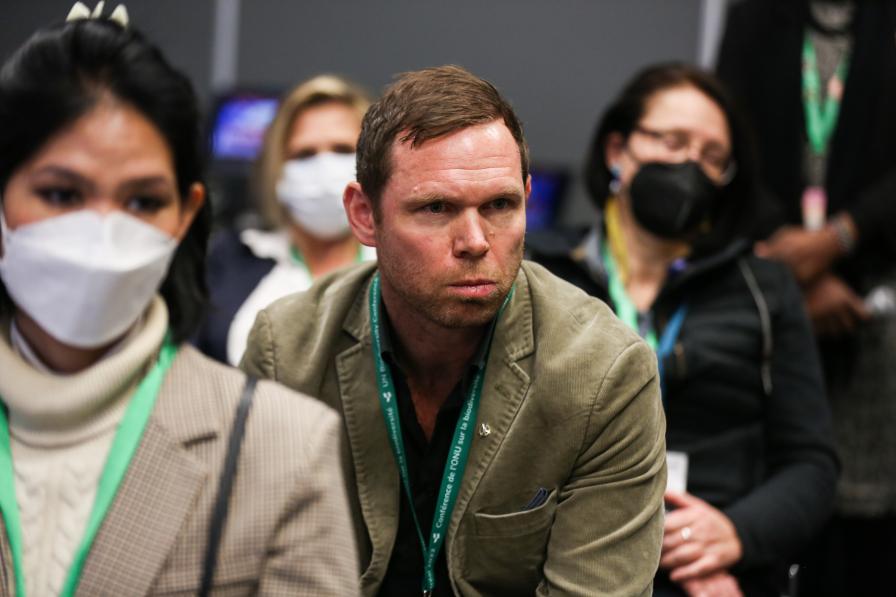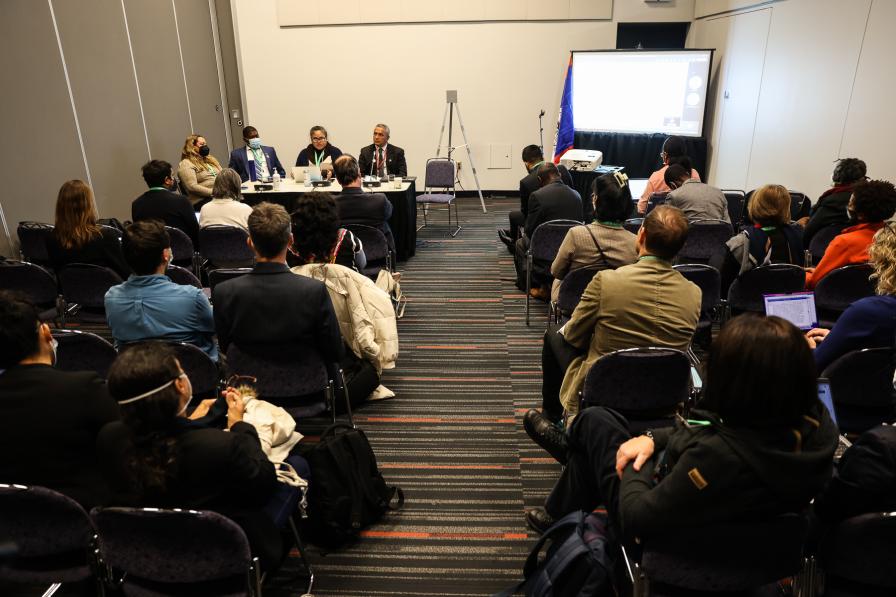About
This side event presented a range of solutions for conservation and sustainable management and use of biodiversity in Belize, emphasizing integrated approaches in the implementation of the Convention on Biological Diversity toward common objectives and financing solutions.
This side event presented a range of solutions for conservation and sustainable management and use of biodiversity in Belize. Its specific objectives included emphasizing and demonstrating integrated approaches in the implementation of the Convention on Biological Diversity (CBD) towards common objectives and financing solutions.
Moderator Hannah St. Luce Martinez, Ministry of Sustainable Development, Climate Change and Disaster Risk Management, Belize, opened the event, noting Belize’s many activities” in innovative finance solutions for biodiversity protection.
Orlando Habet, Minister of Sustainable Development, Climate Change and Disaster Risk Management, Belize, welcomed participants, emphasizing Belize’s global leadership as a model for biodiversity and protected area management, with 110 protected land and seascapes, equaling 43% of national territory. He underscored Belize’s knowledge and experience on financing that safeguard biodiversity, increase revenue, contribute to debt restructuring and improved governance, while aligning with national development goals and meeting global multilateral commitments.
Nayari Diaz-Perez, Executive Director, Protected Area Conservation Trust (PACT), stated that PACT is the only public conservation fund in its region, but includes NGOs and the private sector alongside government representation. She said its revenues come from: a legislated conservation fee on foreign visitors and cruise ships; investments; donations; grants; and providing services to third party investors. She noted PACT’s strategy to ensure funding for long-term support toward specific goals within priority ecosystems. Impact indicators, she said, include improved conservation of priority ecosystems; increased public and private investments, and increased socio-economic benefits.
Maxine Monsanto, Director, Ministry of Blue Economy and Civil Aviation, Belize, described Belize’s recent Blue Bond and conservation commitments, noting that in 2021, the government and The Nature Conservancy (TNC) completed a debt refinancing transaction for nature conservation, with a $364 million debt conversion for marine conservation, reducing debt by 12% of the country’s Gross Domestic Product (GDP). She noted that the Belize Blue Bond agreement involved the world’s largest debt-for-nature swap as both a loan and a commitment to conservation tied to the loan, providing economic “wiggle room” for the country. The agreement, she said, enabled the creation of the Belize Fund for Sustainable Future, designed and co-managed by the government, TNC, and other partners over a 20-year period. On specific conservation commitments tied to the loan, she mentioned, among others, protecting 30% of ocean space by 2026, strengthening fisheries management, and increasing protection of World Heritage Sites, including the Belize Barrier Reef system.
Kenrick W. Williams, Ministry of Sustainable Development, Climate Change and Disaster Risk Management, Belize, spoke on progress and opportunities under REDD+ for results-based payments to help mitigate climate change. He said Belize started with a baseline land use change assessment from 2000-2018 and development of a national forest monitoring system, alongside integrating benefit-sharing goals, including for Indigenous Peoples, land tenure, and long-term health, education, and forest protection. He said Belize “wants to go to market now”, and is exploring branding, having discussions with buyers, ministries, and banks, and setting up a registry to ensure transparency.
Christopher McGann, Biodiversity Finance Initiative (BIOFIN), Belize, discussed financing solutions for biodiversity conservation in Belize. He said a suite of financing tools for have been identified, including strengthening environmental funds, green and blue debt, biodiversity offsets, crowdfunding, compensation for planned environmental damage, debt-for-nature swaps, and carbon markets. He noted the creation of Belize’s National Biodiversity Office was approved in 2021 and is responsible for implementing the country’s National Biodiversity Strategy and Action Plan (NBSAP), overseeing protected areas, mobilizing finance, and managing data to support decision making. On policy coordination and a “financing solution” for implementation, he said Belize is, inter alia, developing an interactive web application tracking tool for biodiversity investments, a protected area business plan, and in 2023, will explore private sector green investment.
Juliet Niel, World-wide Fund for Nature (WWF), reported on project finance for permanence (PFP), in which funds are mobilized “in one burst” for preserving ecosystems through making them resilient enough to thrive for future generations. She said PFP pursues long-term sustainability through developing: large-scale conservation targets; a conservation plan; a financing model projecting long-term costs of maintaining long-term benefits; closing conditions for receiving funds; and partnerships with others for fundraising; and an independent fund administrator. She confirmed Belize’s eligibility through its: engagement with Indigenous Peoples, relationship with WWF; stable, accountable political system and high government commitment; and a very interested private and public donor base.
In ensuing discussion, participants addressed: how donors can simplify, and build regional capacities for accessing, funding; national forest monitoring for REDD+ monitoring, reporting, and verification; the need for an integrated, centralized framework for reporting under environmental agreements, and measurement of ecosystem health through existing data on conservation health, marine spatial plans, and national commitments for long-term goals.
Organizers: Government of Belize
Contact: Rasheda Garcia officer2.nbio@environment.gov.bz
For more information: https://www.cbd.int/side-events/5166
Written and edited by Tallash Kantai, Vijay Kolinjivadi, PhD, and Deborah Davenport, PhD.
All ENB photos are free to use with attribution. For this event, please use: Photo by IISD/ENB | Natalia Mroz
To receive free coverage of global environmental events delivered to your inbox, subscribe to the ENB Update newsletter.
